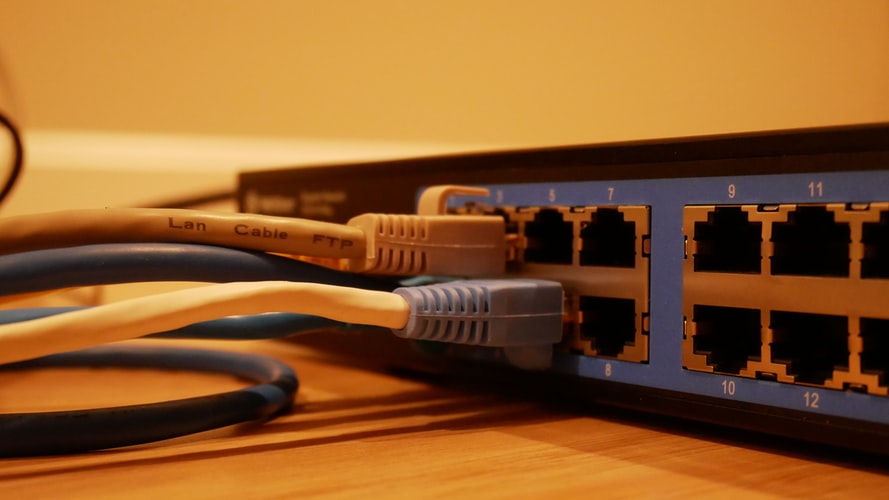A Network Operations Center is also called as NOC. A NOC is a single huge place for remote monitoring and the administration of IT infrastructure. A NOC can also be considered a strong room. It consists of screens showing real-time data at the front, and lines of workstations. Their experts watch the vitals on their assigned endpoints, making a move necessarily.
If you’re considering a job as a NOC technician or NOC engineer, it’s smart to know yourself all the availability of jobs, obligations, and the work environment. NOC jobs are unique in their roles.
Difference between a SOC and a NOC?
The SOC and NOC are responsible for distinguishing, investigating, arranging, escalating, and resolving issues, be that as it may, such issues and impact they have are amazingly unique. The SOC focuses on “intelligent adversaries” while the NOC manages regularly happening system events.
What are the NOC services?
The expression “NOC Services” in the Managed Services Industry is described as monitoring and remediation services for servers, networks, applications, databases, and workstations from a remote network operations center usually known as NOC. A fewbenefits of utilizing NOC Services are:
- Continuous Monitoring and remediation of servers and networks
- 24*7 checking on applications, databases and workstations
- Extended capabilities without the need to assemble headcount or internal resources.
- Wipes out the issue of dealing with each alert and to restrict the quantity of false-positive tickets
- Gives you and your engineers more time for higher-margin and key projects
NOC Monitoring as a Service (MaaS)
NOC Monitoring as a Service limits downtime and gives your IT staff the support to battle technical threats. For a few, in-house network monitoring is distant on account of limited finances and resources. ExtNocMaaS is the ideal solution with the reduced cost of in-house NOC Monitoring and Managed Services.
NOC as a Service for Business
Networks can be costly to manage, notwithstanding, they are a priority to keep up with different business aspects. Regardless of a company’s size, outsourcing to a NOC will assist ensure with proper organization, review, security, and assessment of their networks. They can also help with supporting smaller services, run business applications more effectively, and control the network more normally.
Outsourcing NOC will help free a lot of significant internal resources that would be – one way or another should be given to managing your network. This will help improve your cycles and operational issues by putting in new exercises during their downtime. Also, inevitably, it will help decline your overall operational costs.
Why Do Companies Outsource NOC?
The two primary reasons that organizations decide to outsource NOC are to decrease costs and to be able to focus on core business targets and planning. Nevertheless, the research shows a shift in industry thinking. Outsourcing NOC isn’t just about cost-saving any more. It’s seen as a critical tool in development.
Automation is colossally influencing outsourcing. Essentially as the way by which we work is evolving. Thanks to outsourcing. The outsourcing landscape itself is evolving. Thanks to automation. While a couple of outsourced positions will be cleared out, there will be significantly more high-talented, more worthwhile jobs made, accordingly.
The importance of NOC services
Real-time monitoring and support of a company’s It infrastructure are handled by NOC services. These services help to keep IT infrastructure to run smoothly and effectively 24*7.
The NOC provides constant proactive monitoring and management to enable issues to be caught and resolved before they become possible hindrances. The amazing NOC relies seriously upon automation; explicitly, the use of the latest remote monitoring and management (RMM) devices.
The NOC standards include: supporting uptime, promising IT optimal performance, ideal productivity and addressing potential incidents.
Roles and Responsibilities of a NOC Technician
IT infrastructure’s health, security and capacity on client’ environment is empowered by NOC technician and engineer services.
They make decisions and changes as per the assurance of ideal network performance and organizational productivity.
When any movement or mediation from the MSP is required, NOC technicians can make alerts (or “tickets”) that recognize and categorize the issue based on seriousness, alert type, and other principles. In light of the association between the NOC and the MSP, technical teams would then be able to work together to decide the issue (and recognize its fundamental reason to avoid future issues).
Technicians are categorized based on “levels,” which show the severity and difficulty of issues they handle. Levels are numbered from 1 (more basic issues to understand, minor issues) and increase in their ability the most complicated of IT issues.
For example, by virtue of a hardware failure, an alert may be allocated to a Level 1 technical at first. Regardless, upon further investigation, if the issue goes beyond the failed hardware, the ticket may be raised to a Level 2 or Level 3 tech.
NOC technicians ceaselessly research atypical activities on the network, make technical adjustments, and can marshal expansive resources—some that would simply be used often by an in-house IT services provider—to respond to emergency conditions.

